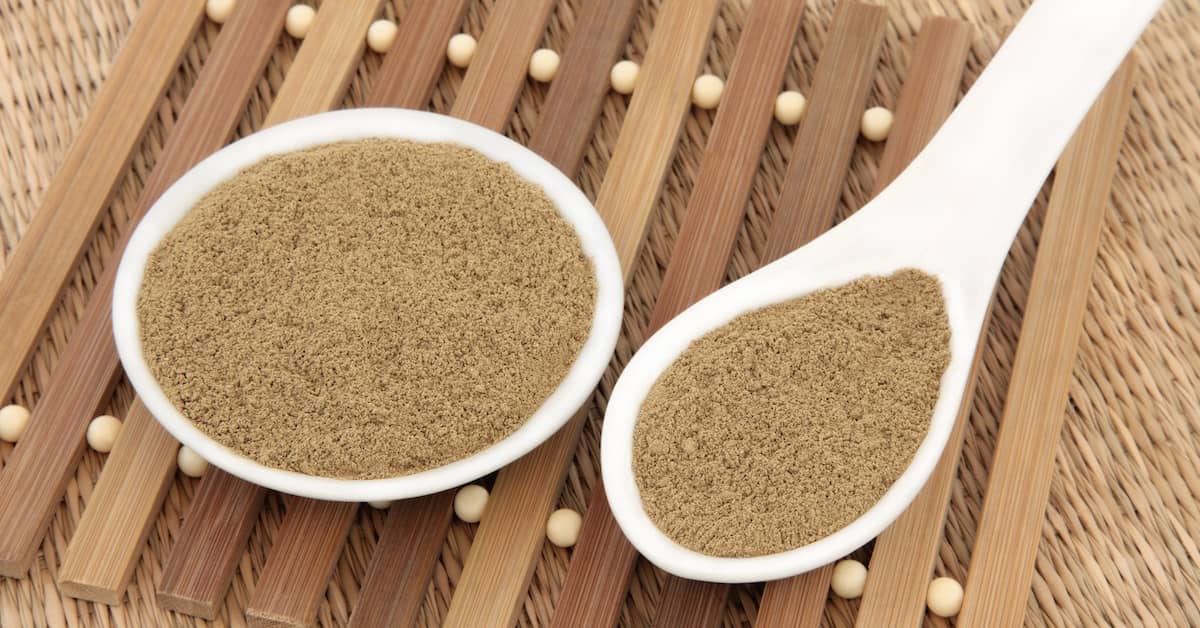
Its scientific name is Polygonum multiflorum, and some refer to it as “he shou wu,” which means “the black-haired Mr. He.”
Whatever the name, this plant has now sparked the curiosity of modern scientists for its myriad health benefits.
Take a glance at these research findings, and you’ll probably think fo-ti is an absolute cure-all! But it’s not quite that, as you’ll see. . .
Fo-ti has shown its might in everything from fighting age-related memory problems to menopause, and more.
Before you run out and purchase this herbal medicine let’s unpack the study results and the potential side effects. First, the good news…
May Fight Memory Problems and Parkinson’s
In studies1 conducted on mice, researchers at the Xi’an Jiaotong University in China found that one of the compounds in fo-ti root has significant brain benefits. This compound, called TSG, can reduce age-related changes in the hippocampus section.Essentially, TSG offers neuroprotection and antioxidant benefits that researchers believe may help prevent Parkinson’s disease, Alzheimer’s disease, and other forms of dementia. It’s also been linked to improvements in learning and memory. It can even help treat inflammation, cholesterol, and cancer.2
Fo-ti + Ginseng Helps with Memory Issues
Another study published in the Journal of Nutritional Science and Vitaminology3 has shown that combining fo-ti with ginseng may be helpful for reducing memory loss in older adults.Plus, results from an additional study4, conducted on mice, suggest that dietary supplementation with these two extracts can reduce harmful changes that are common in the aging brain. This may in turn promote learning and memory, the study states.
Traditional Chinese medicine practitioners recommend fo-ti to treat constipation, graying hair, premature aging, and more. But these claims are not necessarily confirmed yet by Western-style scientific studies. Even so, preliminary scientific findings indicate it has merit in aging issues.
May Increase Estrogen and Manage Menopause
With recent concerns regarding the use of pharmaceutical replacements for estrogen and other female hormones, many post-menopausal women are on the hunt for alternative sources of estrogen to help with their symptoms.In one study5, researchers looked at estrogen bioactivity in a variety of herbs including not only fo-ti, but also red clover, black cohosh, soy, licorice and hops.
They reported that “We discovered surprisingly high estrogen activity in extracts of fo-ti not previously reported.”
Soy topped the estrogen activity chart, while fo-ti came in a close second. Scientists reason that fo-ti works the same way as soy in mimicking estrogen and managing common symptoms like hot flashes, flushing, low sex drive and night sweats.
Are the Risks Worth It?
There’s a great deal of controversy regarding estrogen-mimicking plant compounds, causing many men to avoid them. I don’t eat soy, for example, even though my integrative M.D. thinks it’s a safe, healthy food for males, and gets annoyed with me for not following his recommendation.In my opinion, because of its estrogen-like effects, you should be cautious about taking fo-ti if you have a history of estrogen-related breast, ovarian, uterine or prostate cancer.
The counter-argument in favor of such plant compounds is that they’re merely “like” estrogen, but they aren’t actually estrogen. The plant compounds occupy the same sites on cells that true estrogen would, but don’t perform all the same functions. But if they’re not really estrogen, then what’s their function in reducing menopause symptoms?
This controversy has raged ever since I first got interested in alternative health, and seems to be no closer to being resolved.
Other reported fo-ti side effects include diarrhea, nausea, abdominal pain, and vomiting. Additionally, it may lower your body’s potassium level, which can lead to muscle weakness. A risk of liver damage is also listed among the herb’s possible side effects.
I won’t be adding this one to the 40 or so supplements I take every morning…
- https://www.ahajournals.org/doi/full/10.1161/CIRCULATIONAHA.118.037401?url_ver=Z39.88-2003&rfr_id=ori%3Arid%3Acrossref.org&rfr_dat=cr_pub%3Dpubmed
- https://www.sciencedirect.com/science/article/pii/S0378874114007922
- J Nutr Sci Vitaminol (Tokyo). 2002 Dec;48(6):491-7
- https://www.ncbi.nlm.nih.gov/pubmed/12775116
- https://academic.oup.com/jcem/article/88/9/4077/2845682
